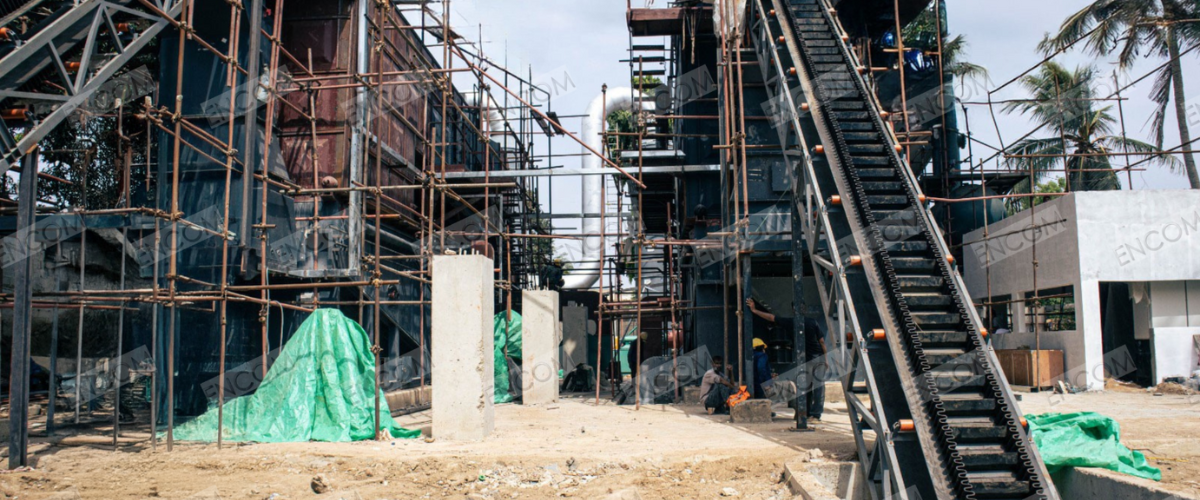Every industrial manager in Pakistan today faces the same burning question: how do we keep operations running efficiently when gas prices keep climbing? It’s not just an accounting headache, it’s a survival issue for industries where energy is the backbone of production and with sustainability targets looming over local and multinational players alike, the real challenge is finding an energy solution that ticks both the cost and climate boxes.
This is where biomass boilers are quietly stepping into the spotlight. For industries in Pakistan, they’re more than just an alternative fuel option. They’re quickly becoming the future of reliable, sustainable, and cost-effective energy.
The Economic Push: Rising Gas Prices vs Biomass Savings
Gas and furnace oil; the traditional fuels of choice, have become unaffordable for many plants. Over the last few years, Pakistan witnessed steep increases in energy tariffs, squeezing margins for everything from food processors to textile exporters.
Biomass boilers, however, are changing that equation. Today, the cost per kWh for biomass energy is highly competitive, and industrial adoption has surged by more than 40% in the last three years. Fuel savings from biomass are proving substantial, with several industries already reporting significant reductions in natural gas and furnace oil consumption by substituting with locally available biomass resources.
Meeting Sustainability Targets Head-On
Pakistan’s pledge under the UN climate framework is ambitious: 60% renewable energy by 2030. For manufacturers, it’s not just a government commitment; it’s a competitive requirement. Export-oriented industries, especially textiles and food processing, are under growing pressure from global buyers to cut their carbon footprint.
By switching to biomass boilers, industries can immediately reduce their greenhouse gas emissions while improving energy security. For corporations chasing net-zero goals, that kind of tangible, measurable impact sends a strong signal of responsibility and foresight.
Pakistan’s Untapped Biomass Wealth
Unlike LNG or furnace oil, biomass doesn’t need expensive imports. Pakistan has vast resources waiting to be tapped: rice husk, wheat straw, cotton stalk, animal manure, and sugarcane bagasse are produced in millions of tons each year. Instead of letting that material go to waste or add to pollution through open burning, industries can bring it into their fuel mix.
Sugar mills across Punjab and Sindh are already running combined heat and power plants based on bagasse. Their experience demonstrates that biomass is not just an idea for tomorrow, it is already proving its value at scale today.
Technology and Market Growth
Globally, biomass is shifting from niche to mainstream. The market for biomass boilers is projected to grow in double digits over the coming decade, and Asia Pacific is set to drive much of that momentum.
On the ground in Pakistan, more than 5,000 operational biogas units and over 50 MW from biomass-based power plants prove adoption is gaining real traction. In addition, Combined Heat and Power (CHP) systems are opening up new efficiency pathways for industrial zones.
Policy, Challenges, and the Road Ahead
Government incentives, coupled with billion-rupee investments from private players, show that biomass is firmly on the agenda for Pakistan’s energy future. Yet challenges remain: ensuring year-round feedstock supply, investing in modern technology, and building technical expertise for long-term efficiency.
This is exactly where strategic partners make the difference. Instead of trial-and-error, industries need experienced solution providers who understand both the technology and the economics of local energy.
Where Encom Fits In
With over two decades in Pakistan’s industrial heating, power, and cooling sector, Encom Pakistan has been at the forefront of helping industries adopt advanced, energy-efficient solutions. As the representative of leading global OEMs, and with certified technical teams trained internationally, Encom supports industries in moving from discussion to delivery, covering everything from pre-project consultation to turnkey execution and after-sales O&M.
Conclusion: A Future Too Valuable to Ignore
Pakistan’s industrial landscape is at an inflection point. Rising gas prices are here to stay, and sustainability is no longer optional; it’s a strategic imperative. Biomass boilers offer a rare win-win solution: cutting costs, reducing emissions, and harnessing Pakistan’s own agricultural resources.
The question is no longer ‘if’ biomass will shape the future, but ‘who’ will make the move soon enough to gain the advantage. For industries looking to answer that confidently, partnering with experienced leaders like Encom can ensure the shift is not just smooth but transformative.

